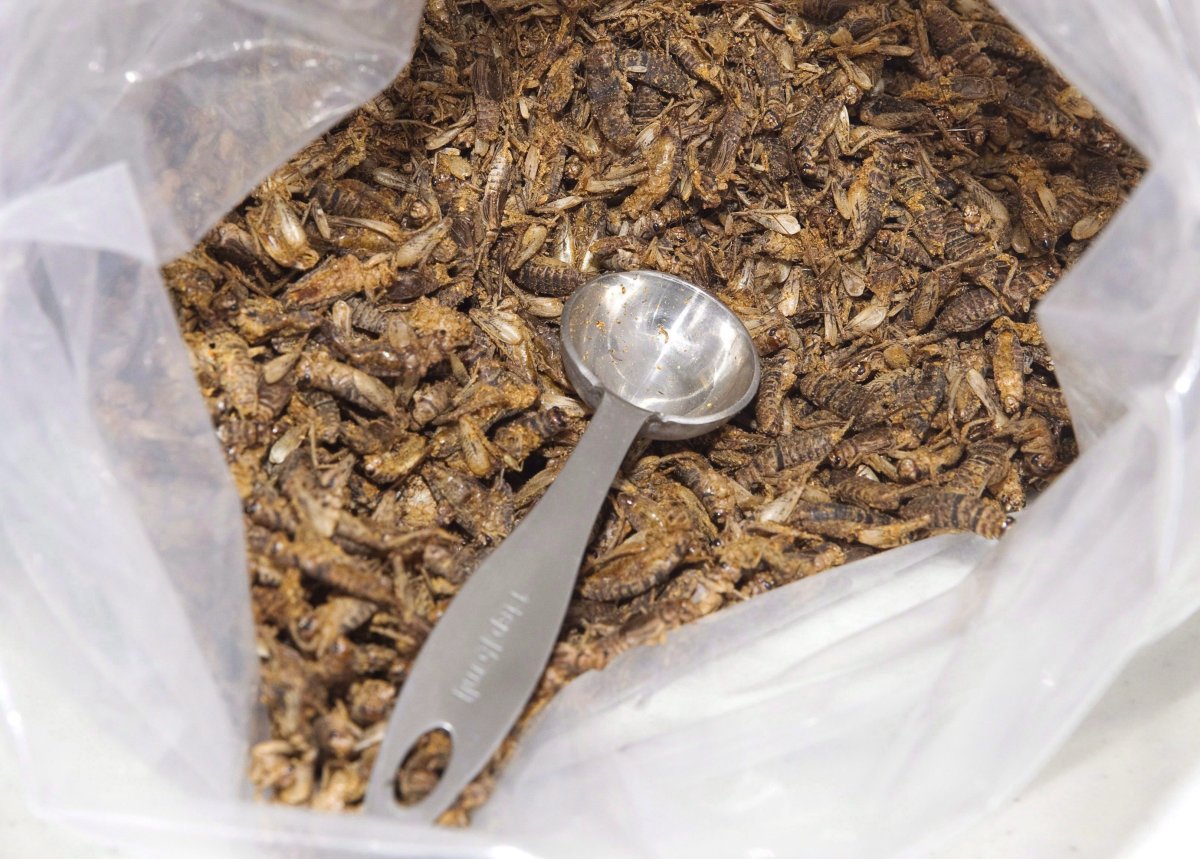Would you eat bugs?

It all depends on how they’re marketed, say experts, because the health benefits of eating certain types of insects are hard to deny.
Dr. Sylvain Charlebois, scientific director of the agrifood analytics lab at Dalhousie University, told 680 CJOB that the bugs-as-food industry is on the rise — as long as people can get past the “yuck” factor.
“It’s actually quite efficient,” said Charlebois, “but the yuck factor is hard to get rid of.
“We actually ran a survey last year on bugs, and 15 per cent of Canadians would be willing to eat bugs regularly, at least once a week.”

Charlebois said the bug biz has a leg up on its more traditional competition, as certified producers can churn out large amounts of insect-based protein while making a tiny footprint.
“Whether you believe it or not, there actually is a science behind feeding bugs, and if you are selling bugs to support the human supply chain, you have to be certified in Canada, so it exists, it’s there, and it’s only going to grow. Frankly, you can actually produce thousands and thousands of crickets in a very, very small room so space is not an issue.”
The founder of a Winnipeg company that sells cricket-based protein powder told 680 CJOB the sustainability of his products is a huge benefit.

Get weekly health news
“It depends on how big the batch is, but you can pull out up to 3,000 lbs of edible crickets in a 2,000 sq. ft room in about six weeks,” said CRIK Nutrition’s Alex Drysdale.
“That’s part of what makes crickets so sustainable compared to the vast areas of land needed to grow mammals.”
Drysdale, whose crickets are grown specifically for human consumption at an Ontario lab, said they’re fed an organic, gluten-free chicken feed, and that people would be shocked at how clean the facility, and the crickets, actually are.
“When I first visited the cricket farm, it was really mind-blowing how clean that farm was, because animals are very messy, which a lot of us are used to thinking with a farm,” he said.
“The crickets themselves are very clean, and when they poop, it’s like hard little capsules, and that’s also a really, really rich fertilizer which they can sell as well which adds to the sustainability and efficacy of selling crickets versus other livestock.”
Drysdale said his business has been growing by leaps and bounds, to the point where he’s working on a re-brand before a big launch in the United States.
The yuck factor, he said, is a big reason why.
“The biggest thing that we found, with CRIK, is that it’s constantly rubbing bugs in people’s faces — reminding them that cricket is that ingredient. People might not be opposed to it, but they just don’t want to be reminded of it constantly.
“We’re not hiding the fact that we have crickets in there, obviously, but we’re more focusing on the benefits and the features of the product than the ingredients themselves.”
If bug-eating still isn’t your thing, Dr. Charlebois said the good news is that Manitoba is at the vanguard of another protein-rich industry.
“I firmly believe that what’s going on in Winnipeg for example with all the investments in vegetable protein is a big, big, big alternative,” he said.
“I think there’s a bright future for that as well, so if you don’t like bugs, at least you may be on to lentils or something.”













Comments